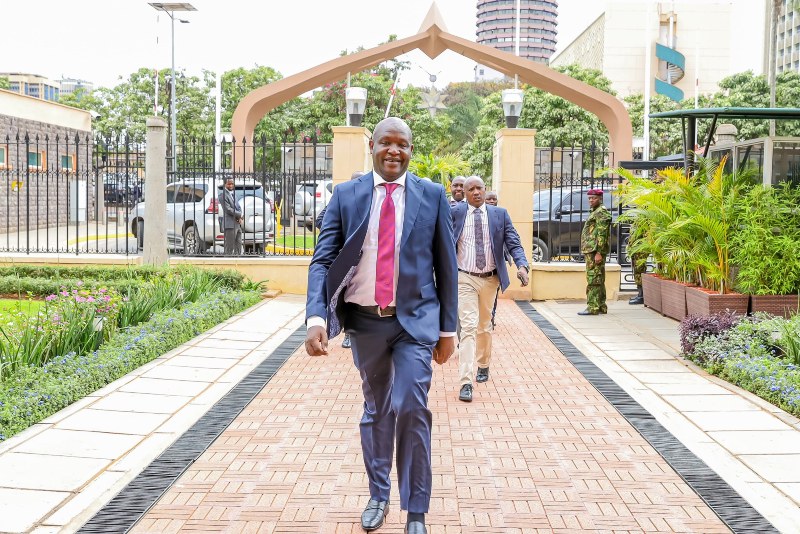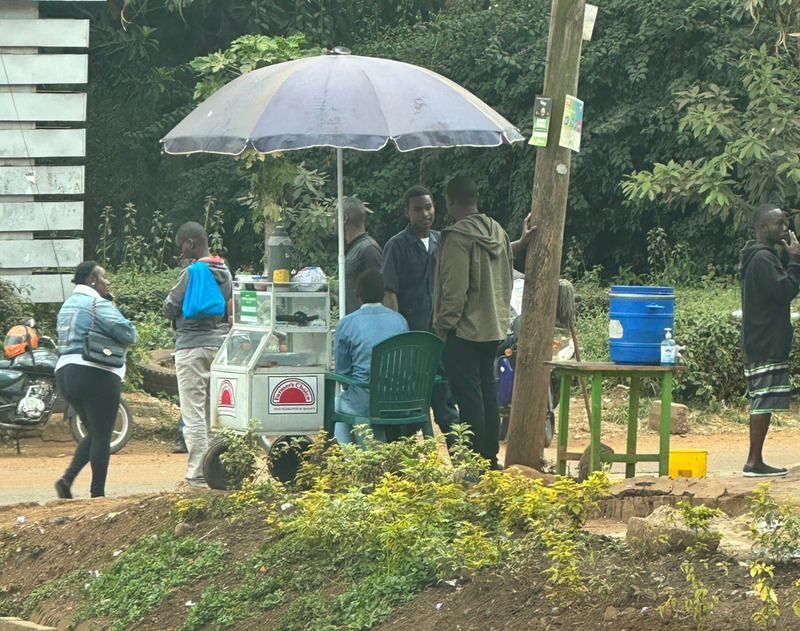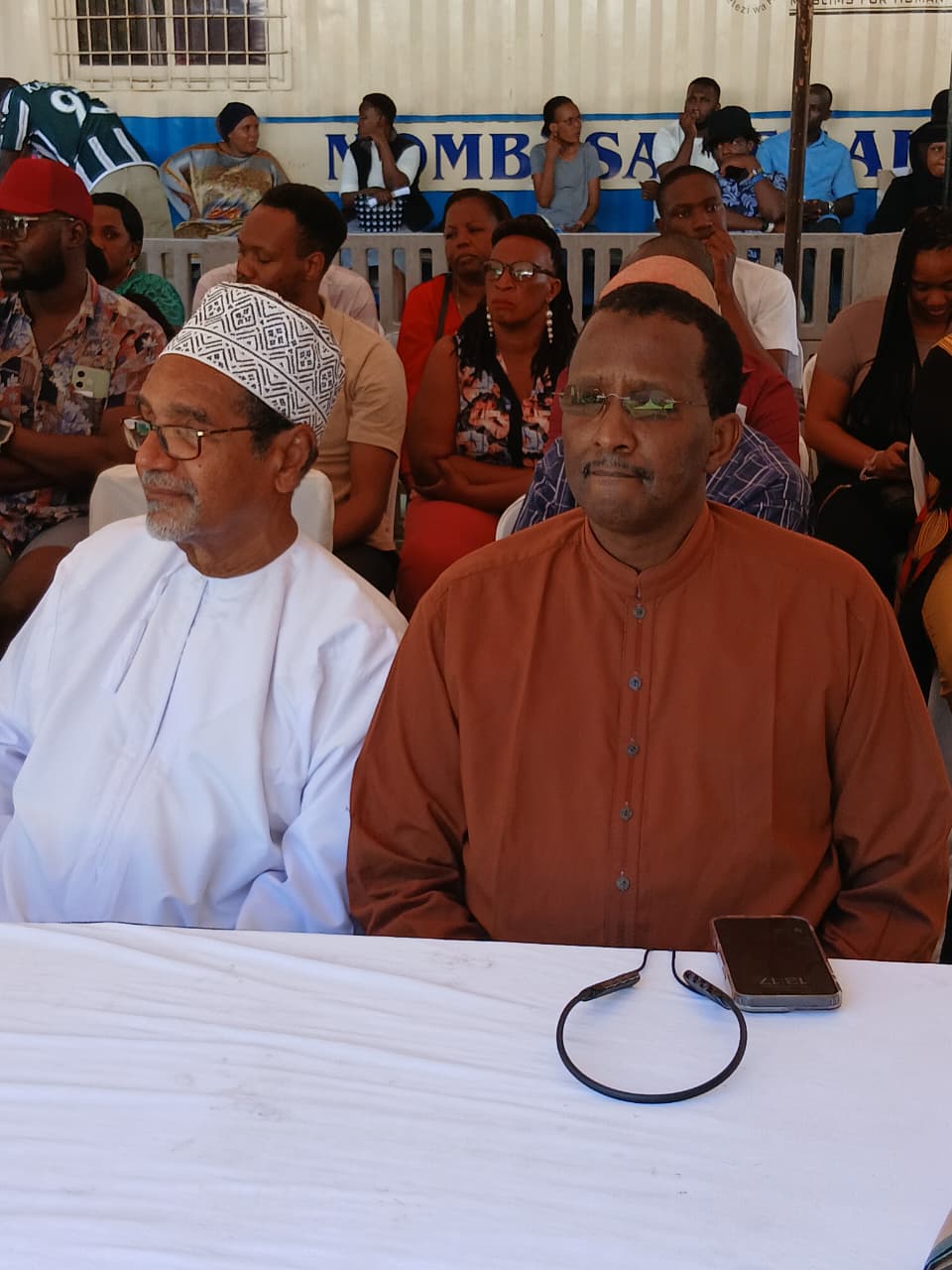State scraps OTP-based authorisations, launches biometric system for SHA verification

According to CS Duale, the biometric system will serve as a game-changer in tackling fraud, reducing paperwork, eliminating queues and enabling health workers to dedicate more time to patient care.
The government has scrapped the use of One-Time Passwords (OTP) for Social Health Authority (SHA) verification, replacing it with a mandatory biometric identification system across all Level 4, 5 and 6 health facilities.
Speaking on Monday during the launch of the new system at Kenyatta University Teaching, Referral and Research Hospital (KUTRRH), Health Cabinet Secretary Aden Duale said all approvals under SHA must now be completed using biometric health IDs or the newly launched Practice 360 app, marking an end to OTP-based authorisations.
More To Read
- SHA under fire: How Kenya’s health insurance reform is repeating NHIF’s mistakes
- Duale defends SHA amid mounting pressure, fraud allegations by MPs
- President Ruto vows to crack down on SHA fraud as 1,000 health facilities shut
- Maraga calls for EACC probe SHA over ghost hospitals scandal
- PS Oluga warns of health facilities faking staff, equipment to obtain licenses
- 'Crack the whip': Bunge La Wananchi demands action on SHA fraud
“With immediate effect, SHA will no longer accept OTP-based authorisation. All approvals must be completed using either biometric health ID or the Practice 360 app,” Duale said.
According to the CS, the biometric system will serve as a game-changer in tackling fraud, reducing paperwork, eliminating queues and enabling health workers to dedicate more time to patient care.
“This innovation will secure access to health services without physical documents. Your fingerprint will verify your identity securely, eliminating fraud and misuse of benefits. It reduces paperwork, shortens queues, and ensures more time is spent on patient care,” he said.
The new biometric health identification and verification system is part of the government’s broader digital transformation in health, implemented through the Digital Health Agency (DHA). Duale said the system, already operational at all Level 4, 5 and 6 hospitals, will soon be extended to Levels 2 and 3.
The government has also rolled out the geo-fenced and geo-tagged Practice 360 app, designed to prevent doctors from sharing pre-authorisation codes. Duale said healthcare workers can now view, approve and manage pre-authorisation claims and the services they offer directly through the Practice 360 app.
 Health CS Aden Duale, alongside Ministry of Health officials at the Kenyatta University Teaching, Research and Referral Hospital on August 4, 2025. (Photo: MoH)
Health CS Aden Duale, alongside Ministry of Health officials at the Kenyatta University Teaching, Research and Referral Hospital on August 4, 2025. (Photo: MoH)
Since the rollout of SHA, the Ministry of Health said more than 25.1 million Kenyans have been registered. Additionally, over 10,000 health facilities, both public and private, have been contracted, with the Authority reimbursing Sh47.5 billion under the Social Health Insurance Fund and another Sh6.9 billion through the Primary Healthcare Fund.
At KUTRRH alone, Duale revealed that claims worth Sh1.4 billion have been submitted, with the hospital already receiving over Sh1 billion in payments.
Duale reaffirmed that the Ministry of Health would not process reimbursements for drugs that were not dispensed, warning pharmaceutical providers that failure to upload certified product data within 30 days would lead to deregistration from the SHA system.
“We will not allow anyone to steal from SHA or compromise its operations,” Duale said, referencing a recent crackdown that saw 35 private hospitals shut down over fraudulent claims.
“How can a hospital with 14 beds claim to have 100? This is outright theft. They think we are still in the NHIF era.”
The CS said the government remains committed to ensuring the SHA delivers under the Universal Health Coverage agenda, promising transparency and efficiency through digitisation.
 Health CS Aden Duale, alongside Ministry of Health officials, unveiled the nationwide Biometric Health Identification (BHI) system at the Kenyatta University Teaching, Research and Referral Hospital on August 4, 2025. (Photo: MoH)
Health CS Aden Duale, alongside Ministry of Health officials, unveiled the nationwide Biometric Health Identification (BHI) system at the Kenyatta University Teaching, Research and Referral Hospital on August 4, 2025. (Photo: MoH)
Other health officials, including Medical Services Principal Secretary Ouma Oluga echoed Duale's sentiments, urging providers to embrace the new tools.
“The biometric system allows health workers to focus on care, not paperwork. It ensures public resources go where they’re needed most—into saving lives,” he said.
Health Director General Patrick Amoth reiterated that the system will ensure correct diagnosis and treatment for the right patient.
“We are eliminating confusion and building a healthcare system that works with clarity, speed, and integrity,” he said.
SHA CEO Mercy Mwangangi said biometric verification would curb impersonation and fraudulent claims, protecting public funds.
“Every claim will now be tied to a real patient and a real health event. This is how we restore trust in health financing,” she said.
Digital Health Agency CEO Antony Lenaiyara added that the biometric system is part of a larger digital architecture that includes electronic health records (EHRs), the National Product Catalogue and the Health Information Exchange.
“Our vision is one patient, one record, one system—accessible anywhere in Kenya,” he said.
The Ministry said the biometric registration is accessible via the SHA website, through mobile by dialling *147#, or during ongoing in-person drives across the country. Data captured includes fingerprints and facial recognition.
The Ministry confirmed that it is working with county governments to equip more facilities with digital infrastructure to achieve full national coverage by the end of the implementation cycle.
Top Stories Today
Reader Comments
Trending

















































